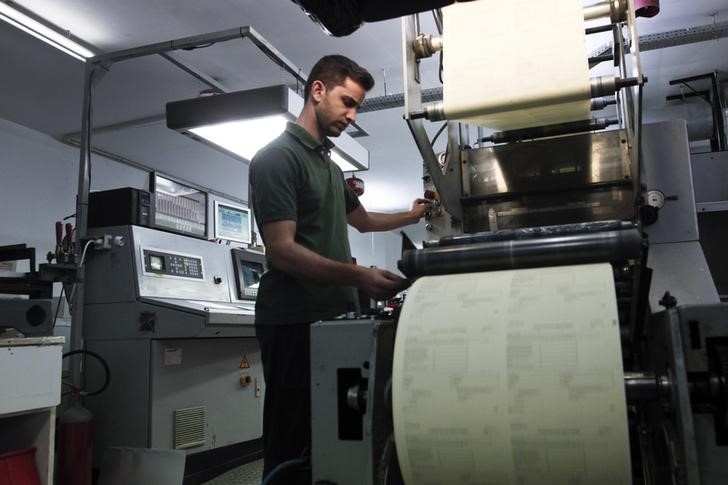Investing.com - Manufacturing activity in the U.K. registered an unexpected decline in November due to a weak pound that is driving price pressures, industry data showed on Thursday.
In a report, market research group Markit said that its U.K. manufacturing PMI fell to a seasonally adjusted 53.4 last month from a reading of 54.2 in October.
Analysts had expected the index to increase to 54.5 in November.
On the index, a reading above 50.0 indicates industry expansion, below indicates contraction.
Markit pointed out that the weak exchange rate was driving up input costs and noted that while growth of production and orders lost impetus, it remained above long-run trends.
The report indicated that it was the fourth consecutive month of growth for the U.K. manufacturing sector.
“There were also signs that the weak exchange rate was having a continued sharp cost inflationary impact, leading to higher selling prices at the factory gate,” the market research group said.
Rob Dobson, senior economist at survey compiler Markit, noted that the exchange rate was having a “major impact” at manufacturers.
“On the plus side, the boost to export competitiveness is leading to increased inflows of new export business,” Dobson said.
“However, 84% of manufacturers offering a reason for higher purchase prices made at least some reference to rising import costs due to the exchange rate,” he added noting that selling prices rose to one of the greatest extents in the past five-and-a-half years.
Dobson warned that the concern would be if higher costs offset any positive effect of the weaker exchange rate.
“As the recent period of uncertainty recedes, fears over rising inflation and the ambiguity around the possible impact of Brexit negotiations, could restrain additional growth in the coming months,” Dave Nobel, chief executive of the Chartered Institute of Procurement & Supply that participates in the elaboration of the survey, concluded.
Immediately after the report, GBP/USD was trading at 1.2512 from around 1.2527 ahead of the release of the data, EUR/GBP was at 0.8480 compared to 0. 8473 prior to the report, and GBP/JPY traded at 143.00 compared to 143.04 earlier.
Meanwhile, European stock markets were trading lower. London’s FTSE 100 lost 0.65%, the Euro Stoxx 50 gave up 0.68%, France's CAC 40 fell 0.53%, while Germany's DAX traded down 0.72%.
